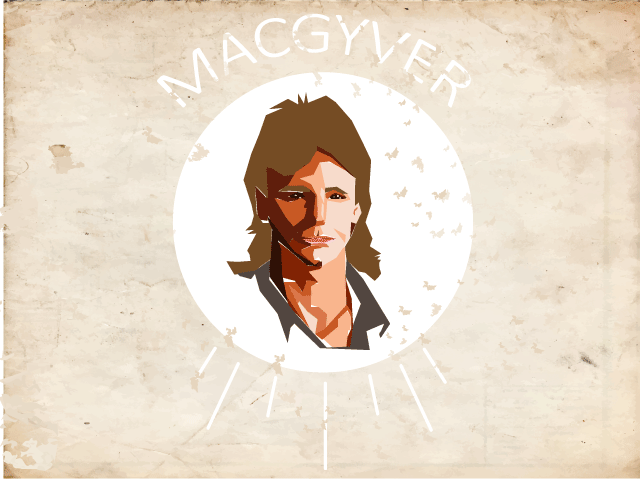WASHINGTON — Remember MacGyver, the guy with the sweet mullet who could get out of any jam with a paperclip, chewing gum and a rubber band? Who could make a jetpack out of soda cans and disarm a nuclear bomb with a Swiss army knife?
A group of Hollywood producers and engineers are hoping you remember him and that his character archetype can kick-start a new generation of women interested in engineering.
“MacGyver,” the hit ABC program from the late 1980s and early 1990s featuring a secret agent whose greatest tool was his own ingenuity, inspired boys across the country to become scientists and engineers.
This group hopes a show featuring a MacGyver-type lead female character could inspire girls to pursue similar career paths. They’ve started a contest, “The Next MacGyver,” to crowdsource ideas for a character or show that fits the bill.
“We’re not interested in blaming popular culture [for the lack of women in engineering schools],” said Adam Smith, Director of Communications for the University of Southern California’s Viterbi School of Engineering. “We’re interested in enlisting popular culture.”
The project and contest kicked off Thursday with an event at the National Academy of Sciences that featured a panel including producers Anthony Zuiker, creator of the “CSI” series, Lori McCreary, CEO of Revelations Entertainment, and Lee Zlotoff, who created the “MacGyver” series.
Nineteen percent of students pursuing engineering bachelor degrees in 2014 were women, down from 20 percent in 2004 according to the National Student Clearinghouse. Women make up only about 24 percent of the engineering workforce, according to data being released next week by Change the Equation, a nonprofit advocating for more science and technology education for children.
“The benefits are real and tangible in recruiting women to the engineering profession,” said Dr. Ruth David of the National Academy of Engineering. “I’m lucky, engineering found me. But we can’t rely on chance.”
The producers will be looking for an interesting female character who uses her brain and ingenuity to solve problems. She doesn’t have to be an engineer, but she should solve problems in a way that would inspire young girls to want to take on that type of hands-on science-based problem solving.
“Storytelling is really similar to developing program applications,” said McCreary, who started out as a computer scientist before she became a producer. “You come up with an idea and then you have to figure out who wants to see the idea. Or in software, who’s going to use it? Why are they going to use it? And then you basically build your team and build infrastructure to see that through.”
The competition runs through April 17 and five ideas will be selected to be developed into pilot scripts by the end of the year. Zuiker and McCreary, joined by Roberto Orci, writer and producer of “Star Trek”, “Scorpion” and “Hawaii 5-0,” and Clayton Krueger, senior vice president of television at Scott Free Productions, will serve as mentors to the contestants whose ideas are selected as finalists.
Zuiker knows first-hand the effect that television can have on inspiring people to pursue new careers. Since his “CSI” programs debuted in 2000, thousands of students have enrolled in forensic science programs at universities. He hopes shows with female leads can have the same effect.
“I develop nothing from this point forward without a female lead,” he said.

